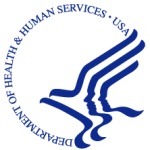- Settore: Government
- Number of terms: 33950
- Number of blossaries: 0
- Company Profile:
United States Department of Health and Human Services, Radiation Emergency Medical Management
A substance found in some plants. Sesquiterpene lactones may have anti-inflammatory and anticancer effects. Plants containing sesquiterpene lactones have been used in some cultures to treat certain medical problems.
Industry:Health care
Abnormal melanocytes (cells that make melanin, the pigment that gives skin its color) are found in the epidermis (outer layer of the skin). These abnormal melanocytes may become cancer and spread into nearby normal tissue. Also called melanoma in situ.
Industry:Health care
A condition in which there is a lower-than-normal number of platelets in the blood. It may result in easy bruising and excessive bleeding from wounds or bleeding in mucous membranes and other tissues.
Industry:Health care
A drug used to help people stop smoking by acting the same way nicotine acts in the brain. It is a type of nicotine receptor partial agonist. Also called Chantix.
Industry:Health care
An indolent (slow-growing) cancer in which immature lymphocytes (white blood cells) are found in the blood and bone marrow and/or in the lymph nodes. Chronic lymphocytic leukemia (CLL) and small lymphocytic lymphoma (SLL) are the same disease, but in CLL cancer cells are found mostly in the blood and bone marrow. In SLL cancer cells are found mostly in the lymph nodes. Chronic lymphocytic leukemia/small lymphocytic lymphoma is a type of non-Hodgkin lymphoma. Also called CLL/SLL.
Industry:Health care
A drug used to treat acute leukemias and some other types of cancer. It blocks a certain enzyme needed for cell division and DNA repair, and it may kill cancer cells. Daunomycin hydrochloride is a type of anthracycline antibiotic and a type of topoisomerase inhibitor. Also called Cerubidine and daunorubicin hydrochloride.
Industry:Health care
The blocking of an artery by a clot or foreign material. Embolization can be done as treatment to block the flow of blood to a tumor.
Industry:Health care
A laboratory technique used to look at genes or chromosomes in cells and tissues. Pieces of DNA that contain a fluorescent dye are made in the laboratory and added to cells or tissues on a glass slide. When these pieces of DNA bind to specific genes or areas of chromosomes on the slide, they light up when viewed under a microscope with a special light. Also called FISH.
Industry:Health care
One of a group of proteins that help protect cells from stresses such as heat, cold, and low amounts of oxygen or glucose (sugar). Heat-shock proteins help other proteins function in normal cells and may be present at high levels in cancer cells. Blocking the activity of a heat-shock protein called HSP90 is being studied in the treatment of cancer. Other heat-shock proteins including HSP70 and gp96 are being studied in vaccines to treat cancer. Also called HSP and stress protein.
Industry:Health care
